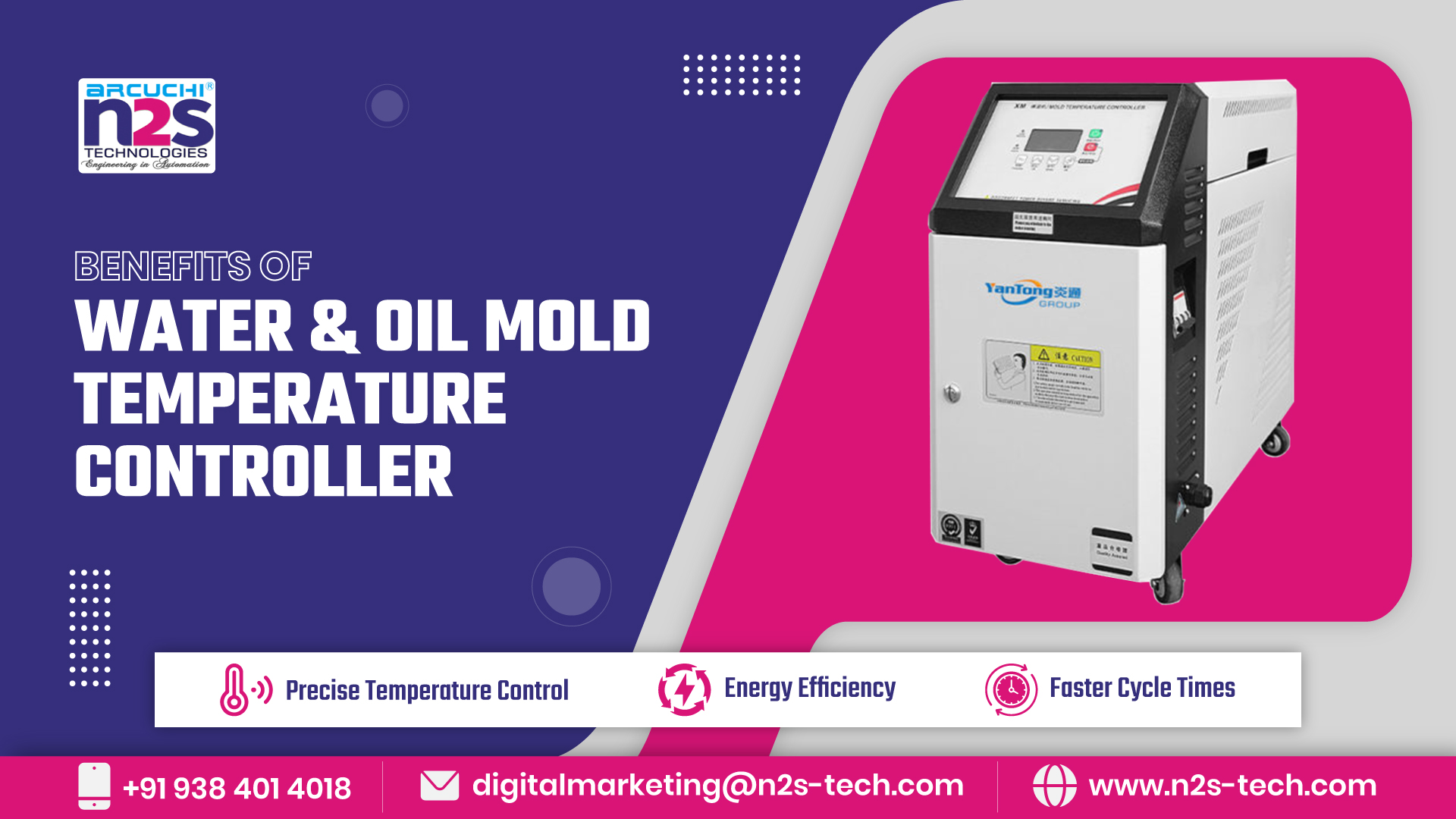The benefits of the Mold Temperature Controller depends in specific choice between the requirements such as temperature range, fluid properties, and environmental impact.

Precise Temperature Control: Both water-based and oil-based mold temperature controllers provide precise temperature control, ensuring consistent temperature regulation for the molding process.
Improved Product Quality: By maintaining a consistent temperature in the mold, both types of mold temperature controllers help prevent defects such as warping, sink marks, and voids, leading to improved product quality
Energy Efficiency: Mold temperature controllers can help reduce energy consumption, and both water-based and oil-based controllers offer energy efficiency benefits.
Faster Cycle Times: Mold temperature controllers can reduce cycle times, increasing productivity and reducing costs, and both water-based and oil-based controllers offer this benefit.
Longer Mold Life: By maintaining a consistent temperature in the mold, both types of mold temperature controllers can help to extend the life of the molds, saving money on replacement costs.
Environmental Impact: Water-based mold temperature controllers are more environmentally friendly since water is a renewable and non-toxic resource, whereas oil-based mold temperature controllers require proper disposal to avoid environmental hazards.







